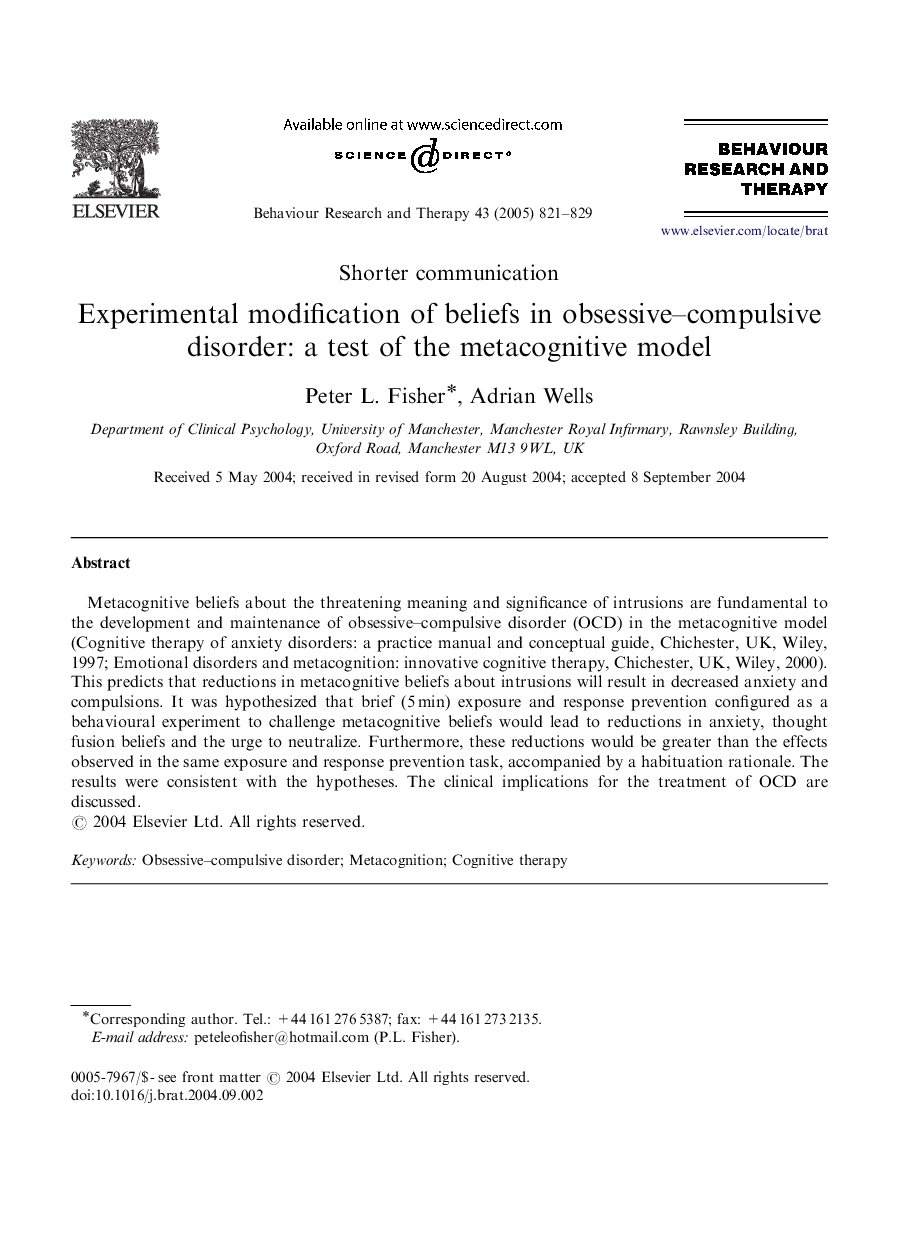| Article ID | Journal | Published Year | Pages | File Type |
|---|---|---|---|---|
| 10445255 | Behaviour Research and Therapy | 2005 | 9 Pages |
Abstract
Metacognitive beliefs about the threatening meaning and significance of intrusions are fundamental to the development and maintenance of obsessive-compulsive disorder (OCD) in the metacognitive model (Cognitive therapy of anxiety disorders: a practice manual and conceptual guide, Chichester, UK, Wiley, 1997; Emotional disorders and metacognition: innovative cognitive therapy, Chichester, UK, Wiley, 2000). This predicts that reductions in metacognitive beliefs about intrusions will result in decreased anxiety and compulsions. It was hypothesized that brief (5Â min) exposure and response prevention configured as a behavioural experiment to challenge metacognitive beliefs would lead to reductions in anxiety, thought fusion beliefs and the urge to neutralize. Furthermore, these reductions would be greater than the effects observed in the same exposure and response prevention task, accompanied by a habituation rationale. The results were consistent with the hypotheses. The clinical implications for the treatment of OCD are discussed.
Related Topics
Health Sciences
Medicine and Dentistry
Psychiatry and Mental Health
Authors
Peter L. Fisher, Adrian Wells,
